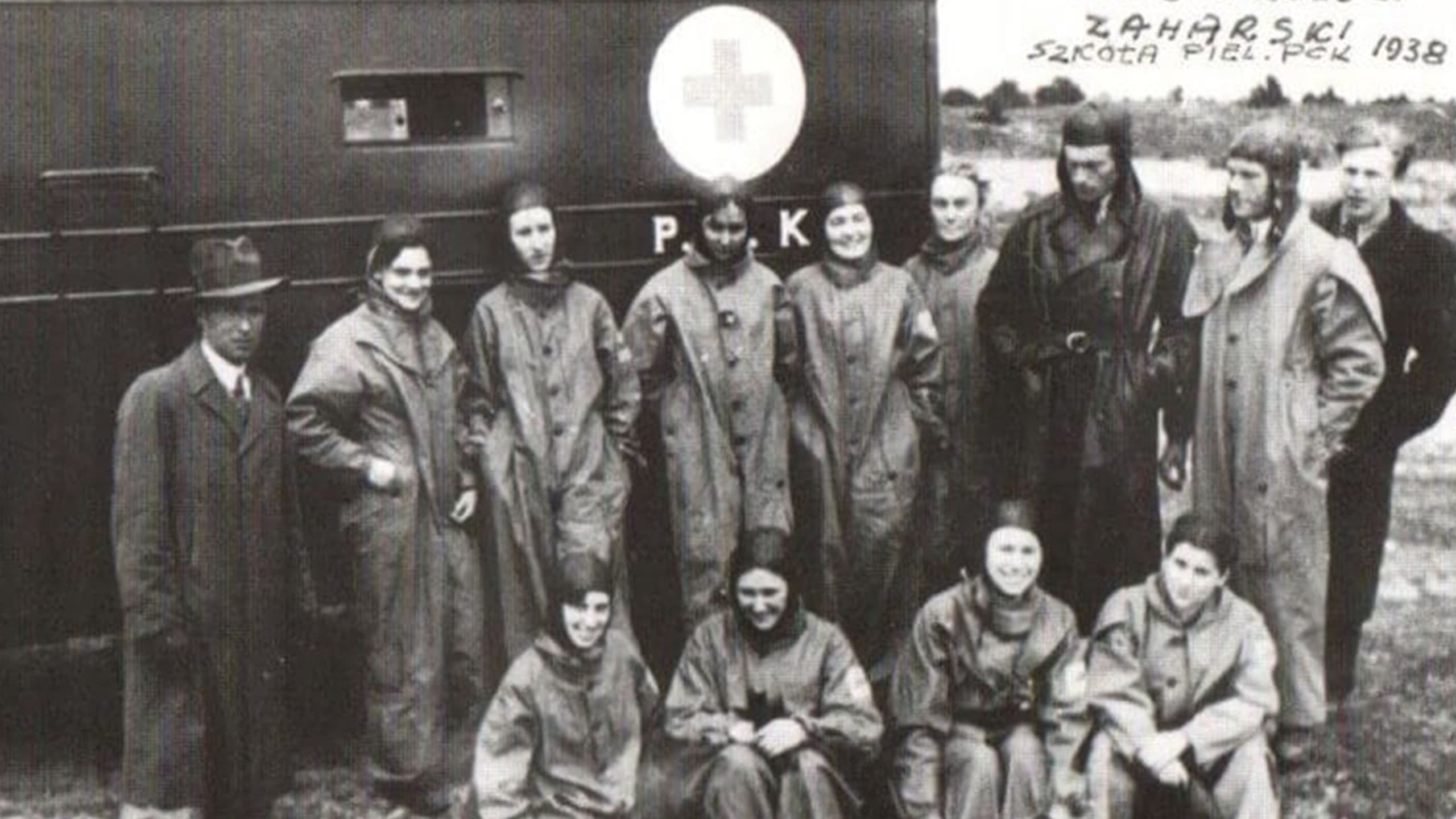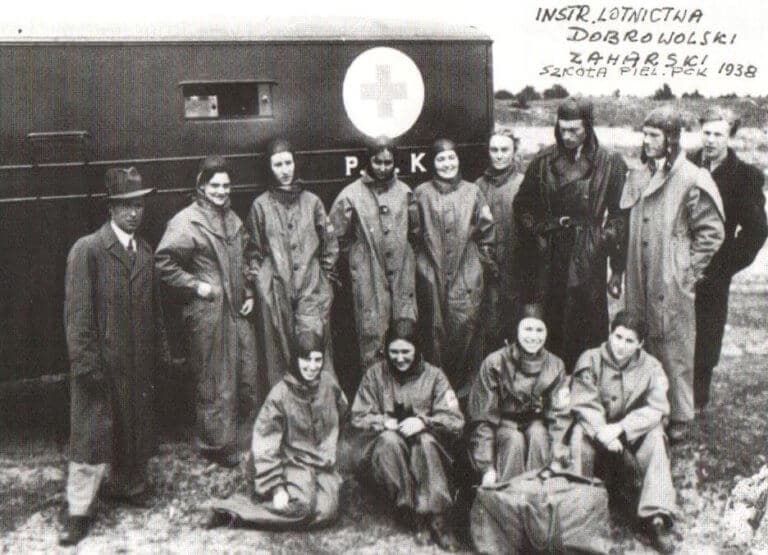The Polish Red Cross was the organizer of parachute courses

At the PCK Nursing School in Warsaw at Smolna 6, a parachuting course for female students was organized in 1938. The curriculum included not only professional subjects but also subjects of a military theme. The parachuting course was an attractive complement to the training of PCK nurses. Eight girls participated in the course, which included theoretical topics and practical classes, including several parachute jumps from various heights. Initially, balloon exercises took place in Legionowo, and at the end, a show was organized at Pole Mokotowskie in Warsaw.

A significant event in the history of Polish nursing and the PCK School was the participation of two students – Jadwiga Węgorzewska and Irena Markiewicz in the sanitary aircraft competition during the International Sanitary Medicine Congress in 1938 in Luxembourg. The Polish team, composed of three military sanitary aircraft and a patrol of sanitary jumpers, which was created together with an instructor by the students of the PCK Nursing School, won the Raphael Cup. The Polish women were the only women among the teams participating in the show and won the hearts of over 2,000 spectators.
After completing the course, all participants returned to classes at the school. After the outbreak of World War II, they were assigned to sanitary points where they served the wounded and sick.
Facts about the Polish Red Cross
Only after the fourth request to the International Red Cross was the Polish Red Cross recognized on the international stage.
The beginnings of blood donation in the Red Cross date back to 1935, which took place 83 years ago.
If the borders of Poland had not been changed after World War II, the 100th anniversary of the Polish Red Cross (PCK) would have been celebrated with the Lviv, Volhynian, and Wilno branches, which are still active today but under the structures of different state associations.
The employees of the Polish Red Cross carried out the exhumation of Polish officers murdered in the Katyn Forest while also being responsible for creating the official Katyn Lists
The Red Cross movement and its foundations were the source for the establishment of sanitary services for wounded soldiers under the names Polish White Cross and Polish Green Cross.
Over the years, the rules for statutory financing of the PCK's activities have changed, as has our role and position within the state.
The PCK enjoyed immense public trust during the Second Polish Republic, and the most important figures in the state always spoke about our organization with the utmost respect.
To this day, in Tarnów, Małopolska, there is a nearly 100-year tradition of parades through the city organized on the occasion of the Polish Red Cross Week.
On February 8, 2018, it was 50 years since the establishment of the badge of the Honorable Blood Donor
On February 8, 2018, it marked 50 years since the establishment of the badge of the Meritorious Honorary Blood Donor
PCK never accepted any gratifications and did not support the Nazi authorities, thereby exposing itself to severe consequences.
The Polish Red Cross was the initiator of healthcare in rural areas during the interwar period and the establishment of the first village health centers.
PCK was involved in the construction of the Marshal Piłsudski Mound in Sowińca in Krakow in 1936
At the beginning of 1919, within the structures of the newly established Polish Red Cross Society, 3 District Branches of the PTCK were created: for Galicia, the Grand Duchy of Posen, and Silesia.
During its 100-year activity, the Polish Red Cross, the International Committee of the Red Cross, honored 102 Polish nurses associated with our organization with the Florence Nightingale Medal.
The Polish Red Cross was the organizer of parachuting courses
Did two Polish doctors working at the Red Cross hospital during World War II save more lives than Oskar Schindler?
There existed simultaneously the Polish Red Cross and the Polish White Cross, whose president was Helena Paderewska.
There was a time in the history of PCK when, legally, two or even three Main Boards of PCK operated simultaneously.
Help us endlessly
Thanks to the kindness and support of our Donors, we can help children, seniors, support medical rescuers, promote the idea of blood donation, and implement many other projects that save lives in times of conflict or humanitarian crises. Every donation and every form of support is significant because the Polish Red Cross connects those in need with those who want to provide help. Let’s help together!
See also
Two Polish doctors working at the Red Cross hospital during World War II saved more lives than Oskar Schindler.
The event took place in Rozwadów near Stalowa Wola. A freshly graduated doctor, Eugeniusz Łazowski, was invited to the local Polish Red Cross hospital by Duchess Anna Lubomirska. Soon he called his colleague Stanisław Matulewicz to join him.
During its 100-year operation, the Polish Red Cross was awarded the Florence Nightingale Medal by the International Committee of the Red Cross to 102 Polish nurses associated with our organization.
The Florence Nightingale Medal was established by the ICRC and awarded on the hundredth anniversary of Florence Nightingale's birth on May 12, 1920. The first Polish nurse to be awarded this medal was Countess Maria Tarnowska in 1923.
You are currently viewing a page filtered by content from the department. Cała PolskaIf you want to view content from Cała Polskaclick the button